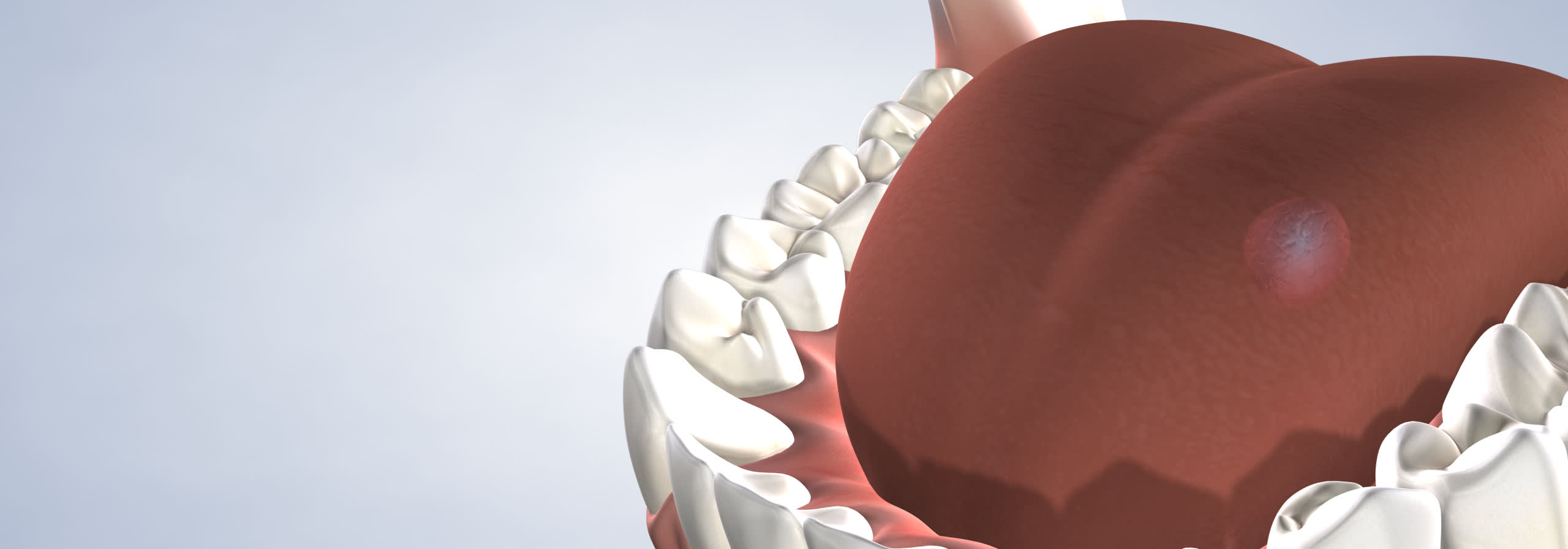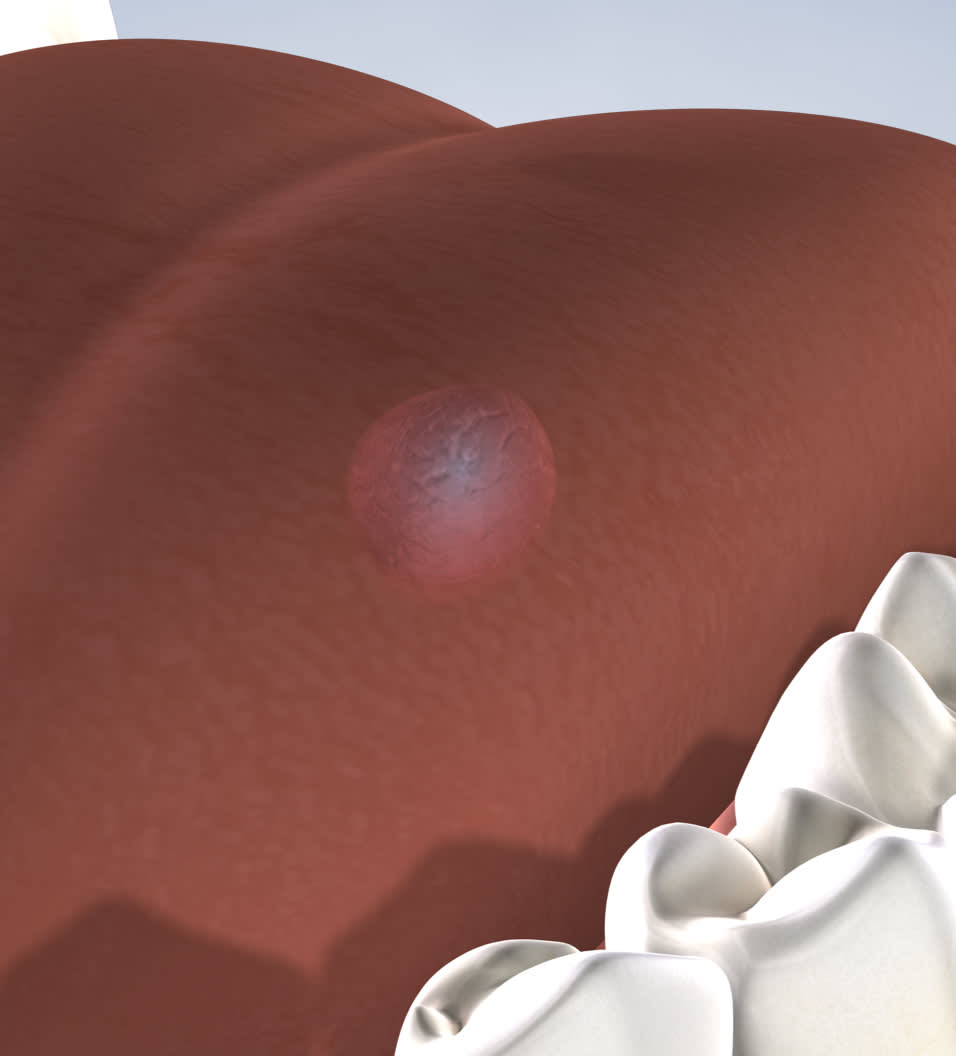

Oral Pathology
Detection and Treatment for Oral Disease
Oral pathology is the study, detection, diagnosis, and treatment of oral diseases. This includes oral cancer and any disease in or around the mouth. When these conditions are caught early, they are treated quickly and yield overall better outcomes. During regular dental checkups with your dentist, your mouth is examined for any signs of a pathological process or cancer. This is why it’s important to attend regular visits with your general dentist.
If a pathological process is suspected, your dentist will refer you to an oral surgeon, such as the qualified experts at Kitsap Oral, Maxillofacial & Dental Implant Surgery. Dr. Sukhdeep Dhaliwal, Dr. Paul Greenawalt and Dr. Douglas Baasch are trained to detect and promptly treat oral pathology cases. If you suspect the presence of oral cancer or disease, contact us in Silverdale, Poulsbo, or Port Orchard, WA, for an appointment.
Signs of Oral Cancer or Disease
The inside of the mouth is smooth and coral pink in color. Any changes to the inside of your mouth can indicate the presence of a pathological process, which can be either benign (non-cancerous) or malignant (cancerous).
Once a month, you should perform a self-examination to see if anything in or around your mouth has changed. To do this, stand in front of a mirror and look inside your mouth, at your cheeks, under the tongue, and all around the gums. If anything has changed from the previous month, schedule an appointment to have this new area examined by an oral and maxillofacial expert.
There are several signs and symptoms to watch out for when looking for a pathological process in and around the mouth, including:
- Changes to the color of the gums, tongue, or lips
- Red or white patches
- Intraoral sores that fail to heal
- A lump or thick area in the lining of the inside of the mouth
- Difficulty chewing or swallowing
- Chronic sore throat or hoarseness
- Gums that appear swollen or inflamed, or that bleed easily
If you experience one or more of these symptoms, we encourage you to contact Kitsap Oral, Maxillofacial & Dental Implant Surgery for an appointment. It is important to rule out cancer as soon as possible and promptly receive the care you need to treat the issue.
Types of Anesthesia
Our practice offers many types of anesthesia and sedation for your comfort.
Treatment for Oral Pathology
Treatment for your condition will depend on the type of pathological process, its severity, and your overall health. At your first visit, we will examine your oral health and may take 3D scans to get a more detailed view of your mouth and face.
In most cases, your oral surgeon will perform a biopsy on the affected area. This will test the affected tissue and determine if the pathological process is malignant or benign. We often use local anesthesia to numb the biopsy area, but also offer a variety of anesthesia and sedation options to choose from prior to undergoing any procedure.
Herpes simplex virus type 1 (HSV-1) is a virus that causes cold sores or blisters. Although it cannot be cured completely, symptoms can be managed with antiviral creams and medications. Candidiasis (thrush) is a common fungal infection that also can be treated with medication.
Oral cancer is primarily caused by HPV, followed by smoking and heavy alcohol consumption. Treatment for oral cancer can include chemotherapy, radiation therapy, or various types of surgeries to remove the affected area. You can decrease your risk of oral cancer by limiting alcohol consumption, avoiding tobacco products, practicing good oral hygiene, maintaining a healthy diet and lifestyle, and protecting your skin and lips from sun damage.
Hear From Our Patients
Expert Oral & Cosmetic Surgery Care
Our surgeons have provided exceptional care to patients in Kitsap County for over three decades. At each of our locations, you and your family can expect to be treated with compassion and honesty every step of the way.



